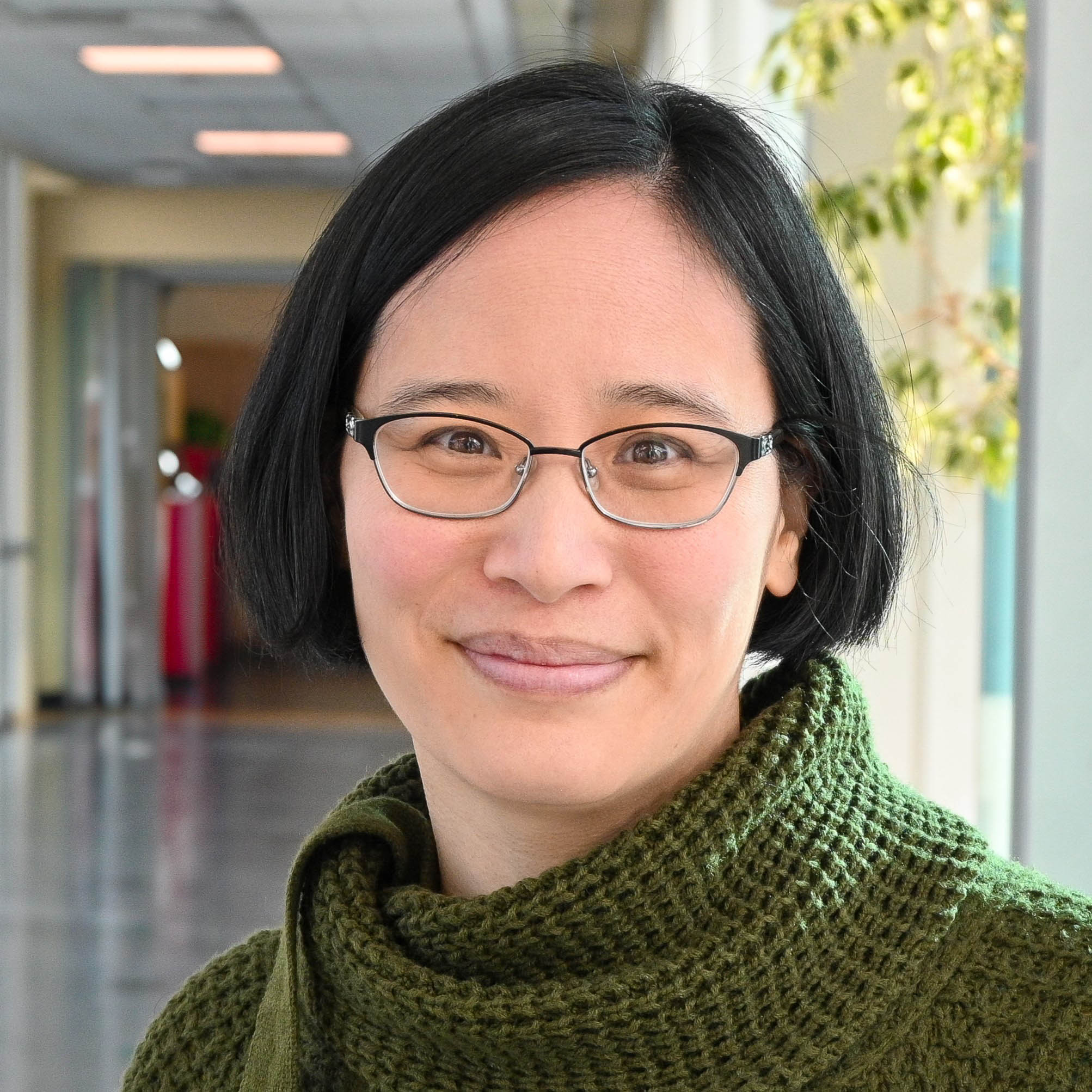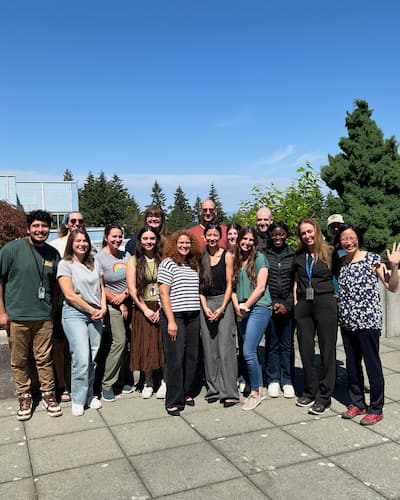SHARP
 Lab
Lab
The Sleep & Health Applied Research Program is a community of researchers and clinicians based in Portland, Oregon with a mission to research how sleep affects the brain across the lifespan in health and disease, and to identify and test new therapies.
Welcome
Since 2016, SHARP has grown rapidly and made a number of foundational discoveries in the form of impactful abstracts, manuscripts, presentations, and additional grant funding and supported career growth for its lab members.
Our translational approach from rodents to humans investigates the neurobiology of sleep in cognition, social development, and mental and general health outcomes in a variety of brain disorders, such as TBI, PTSD, neurodevelopmental disorders and neurodegenerative disease. Our methods include basic science in preclinical models, large-scale observational studies and big data analysis, and randomized clinical intervention trials.
We strive to foster a dynamic and engaging scientific environment that respects diverse strengths and backgrounds and welcomes a culture of lifelong learning and feedback through active mentorship at all levels.
SHARP Co-Director
Miranda Lim, MD, PhD
she/hers

Professor | Department of Neurology
Co-Director | Oregon Alzheimer’s Disease Research Center (OADRC)
Oregon Health & Science University (OHSU)
Staff Neurologist | Sleep Disorders Clinic | Parkinson’s Disease Research, Education and Clinical Centers (PADRECC)
Associate Director of Research and Co-Associate Director of Education (MIRT) | VA VISN20 Northwest Mental Illness Research Education Clinical Center (MIRECC)
VA Portland Health Care System
Dr. Lim earned a combined MD/PhD degree from Emory University in Atlanta in 2006 and completed a neurology residency at Washington University in Saint Louis in 2010. She then completed fellowship training in Sleep Medicine at the University of Pennsylvania. Notable scientific contributions include understanding mechanisms of social behavior in the monogamous prairie vole (Lim et al., Nature, 2004; Jones et al., Science Advances, 2019), defining the role of sleep in the pathogenesis of Alzheimer’s disease (Kang, Lim et al., Science, 2009), traumatic brain injury (Lim et al., Science Translational Medicine, 2013), and Parkinson’s and related disorders (Elliott, Lim et al., Annals of Clinical and Translational Neurology, 2023).
Within and beyond SHARP, Dr. Lim’s goal is to conduct high impact sleep research across rodents and humans to advance our understanding of fundamental biology and health. She strives to foster a dynamic and engaging scientific environment that respects diverse strengths and backgrounds, and welcomes a culture of lifelong learning and feedback through active mentorship at all levels. She values teamwork and independence, organization and creativity, perseverance and sustainability, scientific rigor and transparency, and responsibility and professionalism. Since 2016, SHARP has grown rapidly and made a number of foundational discoveries in the form of impactful abstracts, manuscripts, presentations, and additional grant funding and supported career growth for its lab members.
SHARP is grateful for support from NIH, VA, DoD, NSF, Portland VA Research Foundation and other non-profit organizations to uncover the mechanisms by which sleep impacts promotes brain health across the lifespan in rodent models and humans.
On a personal note, Miranda enjoys taking on new challenges and is always open to trying new things. Prior examples of this outside of science include, living in 6 states across all far-flung corners of the US, playing NCAA Division I Women’s Water Polo at University of Southern California, running half-marathons, rock climbing, yoga, ecstatic dance, partnering, parenting, and most recently, and mindfulness meditation (by far, the greatest challenge yet). Given all this, you might be surprised to learn that her number 1 strength per StrengthsFinder is RELATOR – perhaps the highly social prairie voles that she has been studying since 1999 have finally rubbed off?
SHARP Co-Director
Jonathan E. Elliott, PhD

Assistant Professor | Department of Neurology
Oregon Health & Science University (OHSU)
Research Physiologist | Research Service
VA Portland Health Care System
Dr. Elliott earned his PhD in 2014 from the University of Oregon in the Department of Human Physiology, training with Andy Lovering, PhD. Here he conducted in-lab and field-based research on the mechanisms underlying pulmonary gas exchange efficiency in humans in respone to premature birth, exercise, and hypoxia/acclimatization to high-altitude (Elliott JE, Journal of Physiology, 2014; Elliott JE, Journal of Applied Physiology, 2015; Laurie SS, American Journal of Respiratory Critical Care Medicine , 2018) with pre-doctoral funding via the American Heart Association. He then completed an NIH NHLBI T32 funded Post-doctoral Fellowship at the Mayo Clinic (Rochester, MN) in the Department of Physiology and Biomedical Engineering, training with Gary Sieck, PhD. During this time he investigated aging-related changes in neuromuscular and mitochondrial function in a basic science capacity (Elliott JE, American Journal of Physiology: Lung Cell Molecular Physiology, 2016; Elliott JE, Respiratory Physiology & Neurobiology , 2016).
Dr. Elliott then joined SHARP in 2016, completing an additional 1-year NIH NCCIH T32 funded Post- doctoral Fellowship in the Department of Neurology at OHSU - joining the faculty rank as Assistant Professor in 2019 and Co-Director of SHARP in 2022. Within SHARP a primary focus is to better understand the interplay between sleep and pathophysiologic/neuropathologic outcomes related to chronic pain and long-term neurodegeneration. Experimental paradigms include randomized double- blind placebo-controlled clinical trials, cross-sectional analyses, and case/cohort control studies; all in human subjects (Veteran/active-duty service members and civilians). Techniques employed range from overnight in-lab/at-home polysomnography, sleep/wake analyses via actigraphy and mattress-based sensors, quantitative pain assessments, neuropsychological testing, ventilatory function and apnea-threshold assessments, blood/CSF-based biomarkers of peripheral/central inflammation, advanced imaging via 3T and 7T MRI, qualitative self-report, with advanced statistical and signal processing applications.
Outside of the lab, Jonathan (Jon) enjoys all things Pacific Northwest, including snowboarding, mountain biking, kayaking, and camping, as well as exploring the ever-changing restaurant and brewery scene in Portland.



